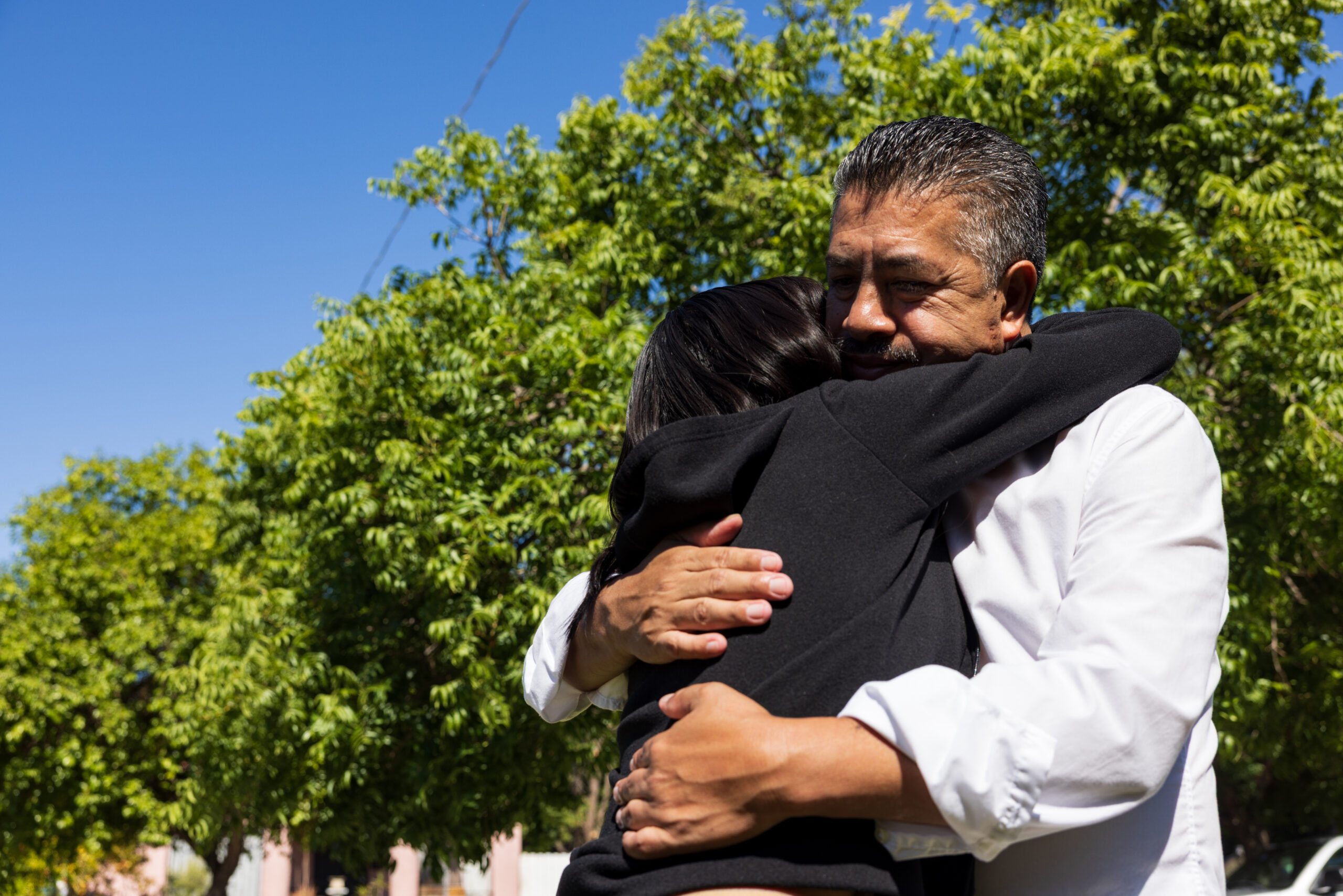
On a warm evening in early August, friends and family gathered in Juan Ramón González’s Pasadena, California, backyard to eat homemade tacos and share stories about the kind-eyed 56-year-old who had lived in the neighborhood for three decades.
González, who entered the country in his 20s without authorization, had recently been reassessing his life in the United States. Amid challenges that once seemed unimaginable, he had been wondering whether he could — or should — stay here, or return to the homeland he hadn’t visited since the mid-1990s.
When he first told his wife, who has a U.S. green card, that he was thinking of “self-deporting” back to his home state of Michoacán in southwestern Mexico, she thought he was joking — and it wasn’t funny.
González had started considering leaving after the Trump administration began an aggressive campaign of harassment, detention and expulsion targeting undocumented immigrants. According to President Donald Trump, “People in our country illegally can self-deport the easy way, or they can get deported the hard way.”
The latter method sometimes involved the federal government shipping off immigrants to a maximum security prison in El Salvador or an alligator-surrounded, military-style prison camp in the Florida Everglades, or even cells built to hold presumed al-Qaida terrorists at Guantánamo Bay Naval Base in Cuba.
The Trump administration claims to have already deported 400,000 people as of September and says it is targeting the estimated 14 million remaining undocumented immigrants, almost a million of whom are believed to live in Los Angeles County, according to research from USC. Since ICE and Border Patrol cannot round up so many people, according to Amica Center for Immigrant Rights senior attorney Amelia Dagen, tactics involving high-profile cruelty aim to terrorize people like González into fleeing.
As the sun set over Pasadena that night, it illuminated the clouds shades of pink and orange against a deep purple sky. González looked up at the spectacular colors and told his loved ones how grateful he was to know them, how thankful he was that God had blessed him with “so many angels.”
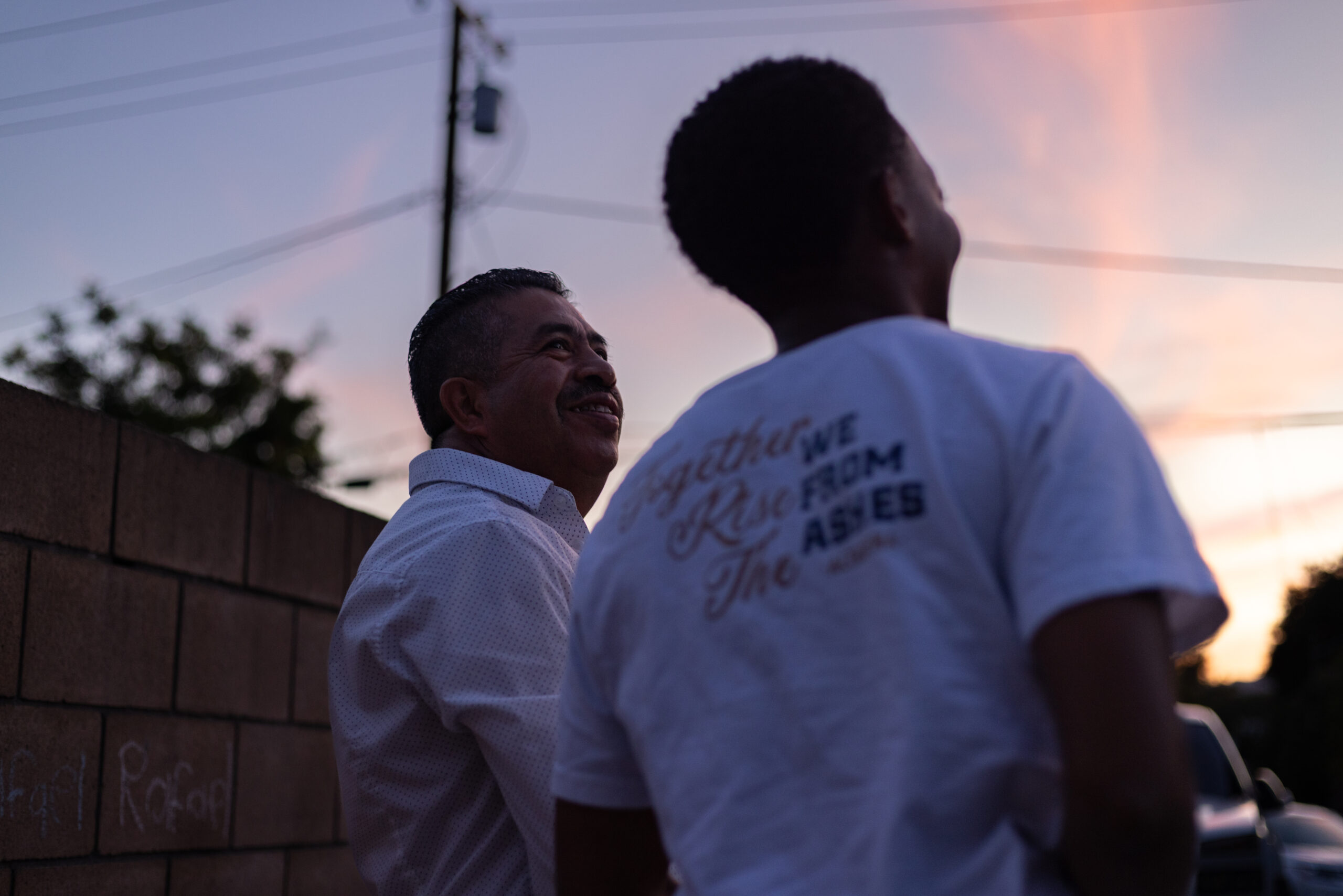
A Land of Opportunity
In the early 1990s, González was working in restaurants and hotels in Pátzcuaro, a town with red-tile roofs and colonial architecture on the edge of a high-altitude lake in Michoacán. He was earning enough to get by, but sometimes relied on tips to pay the bills. A relative encouraged him to seek out his destiny north of the border. After some convincing, González flew to Tijuana and then walked, he said, for three days to enter the United States.
Thanks to a family connection, work came fast. After a couple weeks in Pasadena, he was earning minimum wage, which was more than he ever had. By living on a tight budget in an apartment with some relatives, he discovered that he could send money to support his family south of the border.
Soon, he started working at a local Kentucky Fried Chicken and took a liking to the assistant manager. Three years later, they married and began raising two kids on a quiet Pasadena street. From his front porch, González became a friendly fixture of his neighborhood, greeting passing neighbors like Annabelle Freedman, who moved into the area in 2023. She later said that there was a warmth about González and his family that helped her to feel at home in Pasadena.
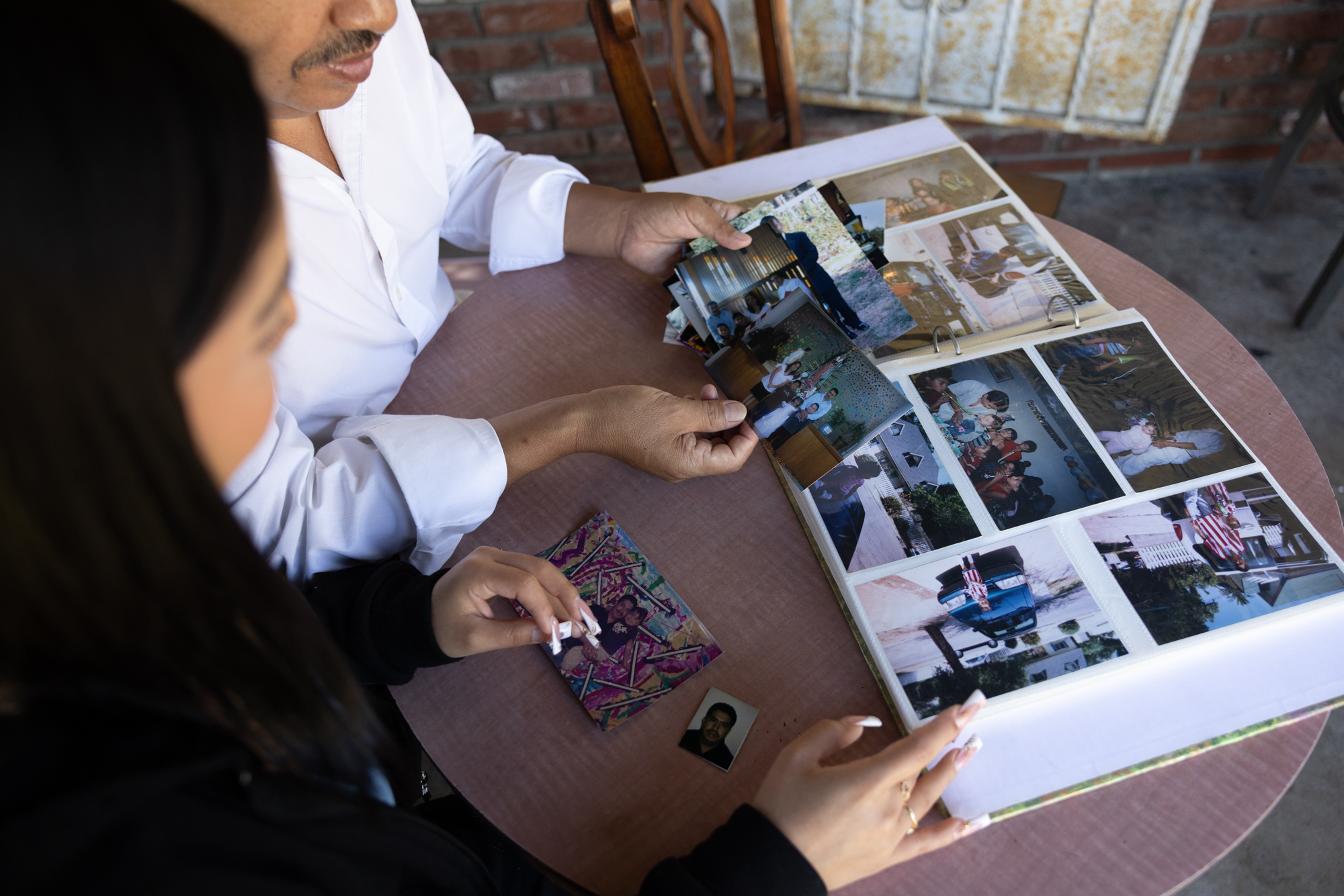
For decades, González thrived there and rarely felt anxious about his legal status. The way he saw it, none of the presidents he had lived under in the U.S. — Clinton, George W. Bush, Obama, Trump and Biden — had caused him much trouble, and he never felt the need to regularize his immigration status, even after having a daughter who was a U.S. citizen. “For 30 years we had no problems. Life was good,” González told Capital & Main in a Spanish-language interview.
But when Trump returned to the White House early this year, “Everything changed.”
Heavily armed masked men began to grab day laborers in parking lots and throw them into unmarked vans. Border Patrol agents in riot gear deployed tear gas near residential neighborhoods, while others in plain clothes manhandled food vendors on the street.
“Watching everything on TV made me depressed,” he said. To him, it looked like kidnappings. “In all the time I’ve lived here, I’ve never seen anything like it.”
“Know Your Rights”
In January, while one of the most destructive wildfires in state history was reducing nearby homes to ash, González evacuated his family for a month. Their house was spared from the flames, but in the chaos, the restaurant where he was employed lost many of its customers and could no longer afford to keep him on. He began to look for new work, but amid Trump’s ongoing crackdown on immigrants, that job search slowed to a crawl because González was afraid to leave his neighborhood.
Freedman was handing out “Know Your Rights” stickers around Pasadena when she bumped into González. “If you know anyone who is undocumented,” she told him, “please share these.”
It wasn’t until the next time they bumped into each other that he told her about his immigration status. From then on, the two regularly met to discuss the challenges of undocumented life, which provided González with an outlet of sorts.
But that didn’t change his circumstances. Without an income for months, he was eating away at his savings, and his dread over immigration raids kept him up at night worrying that masked federal agents might storm into his home and grab him.
One night in May, Daisy — González’s 22-year-old American-born daughter — was getting ready for bed when she received a phone call from her father. He sounded faint, confused. Earlier that night, a stranger had found him on a sidewalk in Highland Park, fading in and out of lucidity, and called for help. González vaguely remembered something about being picked up by an ambulance. He had suffered a heart attack.
Ever since the Trump administration began large-scale raids at many of Los Angeles’ Home Depots, car washes and restaurants, González’s blood pressure had been spiking. The risk was real, he knew, since he had previously been through a heart attack several years earlier.
When Daisy arrived at the hospital, she saw wires connecting González to medical devices and crisscrossing his weakened, shirtless body.
If he were younger and healthier, González thought, he might not have let his circumstances get to him as much. There are millions of immigrants who, despite their fear, continue to work in industries that have long relied on, and sometimes exploited, undocumented labor, to get by and help their loved ones. There are community groups that have stepped up to protect vulnerable people from being victimized by federal agents from Los Angeles, New York City and Chicago to Portland, San Francisco, Boston and beyond.
Despite the widespread solidarity in his city, González, well into middle age, felt worn down. He started asking himself, “What am I doing here?”
If looking for work was difficult before, the heart attack made it nearly impossible. Stuck at home in bad health with constant anxiety, González came to a decision: He would “self-deport” and leave the community he’d been a part of for more than half his life.
The Border
It’s one thing to decide to leave, it’s another to figure out how.
With the help of family and friends, González plotted his departure. He decided not to fly out of an American airport due to the risk of being detained by federal officials in the U.S. As for driving, it would take more than 30 hours from Los Angeles to Michoacán, and involve passing through some dangerous parts of Mexico. Instead, he decided to drive across the border into Tijuana and then catch a flight to Michoacán.
Daisy collected the documents her father might need, like his birth certificate and plane ticket, and Freedman helped start a GoFundMe campaign to supplement González’s depleted savings and offered to drive him across the border herself, with the help of her own dad.
It took weeks to finalize their plans.
It’s hard to know how many people have ended up in González’s position, according to Dagen, at the Amica Center for Immigrant Rights.
She used to reassure immigrants that their rights usually protected them from immediate detention and deportation, and that the government would for the most part follow the law. She says she can no longer make such promises.
“It is hard to tell people that they have constitutional and statutory rights and that it is very likely those rights will not actually be honored,” Dagen said.
The high-profile targeting of immigrants and the subversion of their rights has pushed many to flee the country, she said. The Department of Homeland Security claims, without providing evidence, that some 1.6 million people have fled the country.
While some, including González, have adopted the Trump administration’s preferred language of “self-deportation” to describe their departure under duress, Dagen notes that it does not define any sort of formal process; it is just people leaving without having any legal framework for returning to the United States.
In an ad released by DHS, Secretary Kristi Noem claims undocumented immigrants who choose to leave by their own accord “may have an opportunity to return and enjoy our freedom and live the American dream.”
But Dagen said such promises are being made in bad faith and used to convince people that this supposed “process” is their best chance to avoid violent arrests by federal agents.
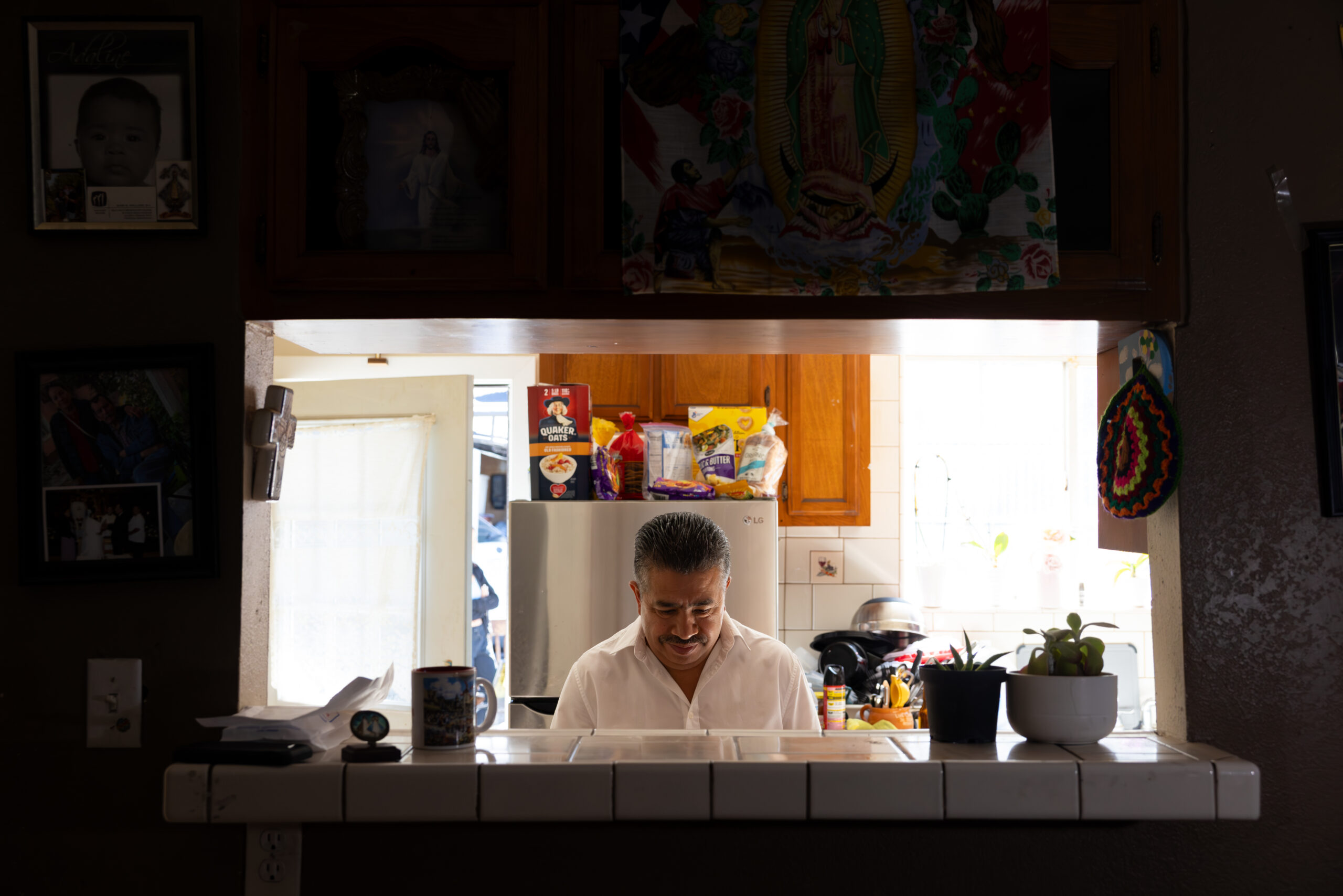
González spent most of his last day at home with his family, savoring their last moments together and packing his things. When Freedman and her own father arrived to pick up González, his family was with him in the living room, weeping. González’s preschool-aged granddaughter had wrapped herself around his leg, begging him not to leave.
After the most difficult goodbyes of his life, he climbed into the Freedmans’ backseat, alongside Daisy and his daughter-in-law, and set off for the border.
Daisy clutched her father’s arm for much of the drive down to Tijuana. Even as they made their way toward Baja California, González remained terrified that immigration officials would somehow nab him before he left the country.
As mariachi music played through the car speakers, they reminisced warmly about González’s years in California, the only place Daisy has ever lived.
There had been times in the last three decades when González desperately wanted to make short-term visits to Mexico — his sister died of cancer near the start of the COVID-19 pandemic, his father passed away a few months later and less than a year after that, his mother followed. He had longed to return to see them in person or, at the very least, to attend their funerals. But he couldn’t be sure that if he crossed the border, he would be able to return.
As they approached the border in August, the atmosphere in the car grew silent. They saw a multicolored welcome sign approaching: “Tijuana México, aquí empieza la patria” — here begins the homeland. In the car, they were all in tears.
When they crossed, González could think of only one thing to say — something he’d waited to exclaim during his months hunkered down in his Pasadena home: “Fuck you, ICE.”
Homeland?
At Tijuana International Airport, González entered security, snaked his way around the belt stanchions and disappeared into his terminal. After a three-hour flight, he arrived in Michoacán, which was a very different place from the one he left in the mid-1990s. Some friends had moved away, others had died.
Today, González lives in the town of Pátzcuaro with an adult daughter from his first marriage whom he hadn’t seen in person in decades. Four of his seven surviving siblings — two brothers and two sisters — are helping him settle into a new life, sharing food with him when they can.
From there, he laments what he left behind in California.
“Half of my life stayed there,” González said during a recent follow-up phone interview from Pátzcuaro. “I cried when I said goodbye to my family, I cried when I arrived in Mexico, I cried the entire way here,” he said.
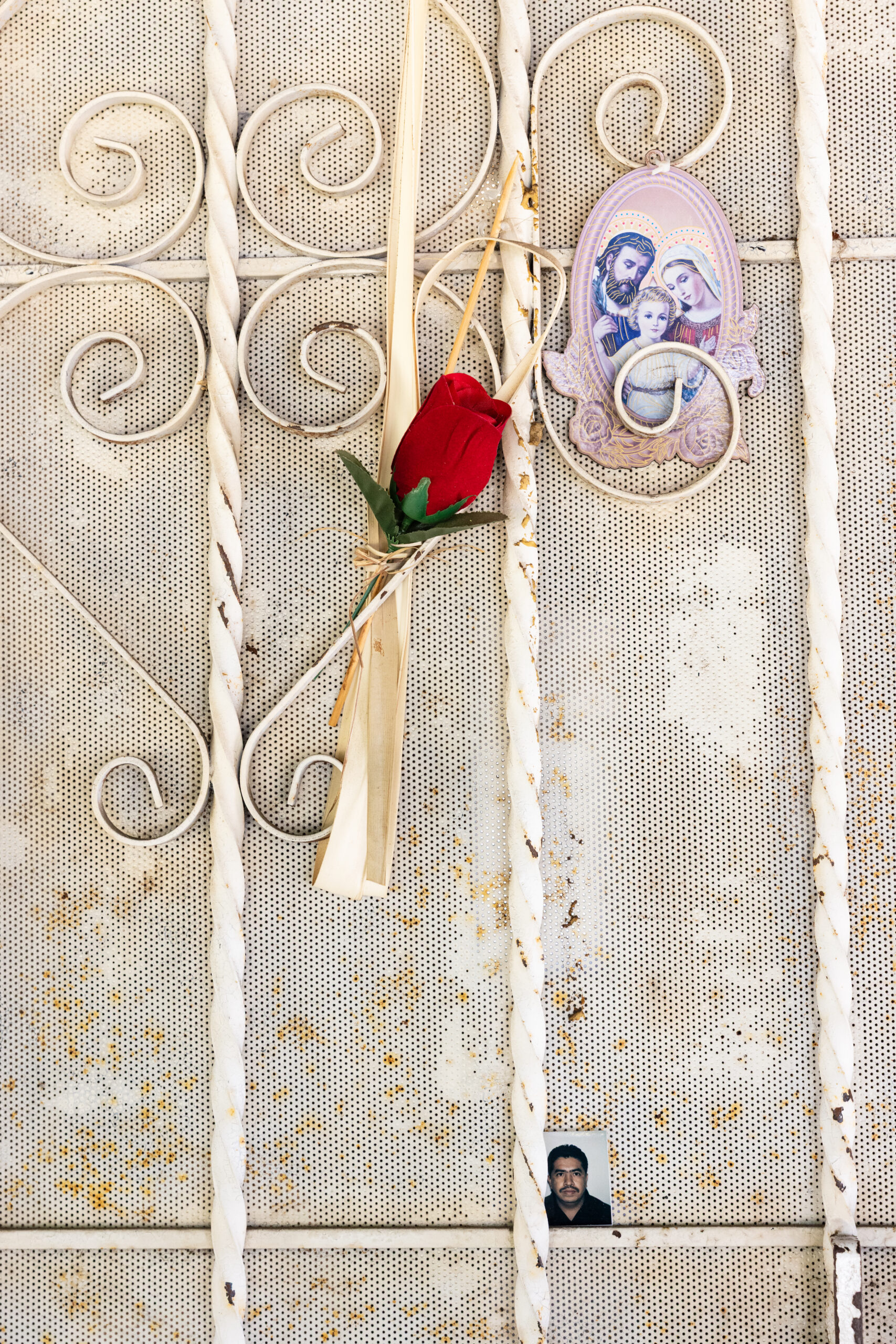
“When I think about it, I still cry sometimes.”
When Daisy opens the front door of her Pasadena home, she still half-expects to see González welcoming her. Instead he is a 1,770-mile drive away, in a Mexican state that the Trump administration warns is too dangerous for Americans to travel to due to widespread violence from “terrorist groups, cartels, gangs and criminal organizations.”
To try to bridge the distance, Daisy and her father speak on the phone nearly every day. He tells her that it rains a lot in Michoacán, and that he misses her. They talk about the news from the U.S. — even though he doesn’t think he will ever be allowed to return.
He’s not sure if he’ll ever feel at home in Michoacán the way he did in Pasadena. He looks forward to a time when his California family might visit him. He hopes to find a new local restaurant job, even if it is certain to pay far less, so he can one day afford his own home in town.
But González no longer fears that masked men with the full support of the White House might abduct him. What keeps him up at night now is knowing that millions of other people are going through what he did in the U.S., attempting to live decent lives while the government treats them like violent criminals.







